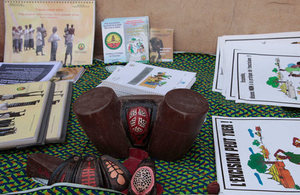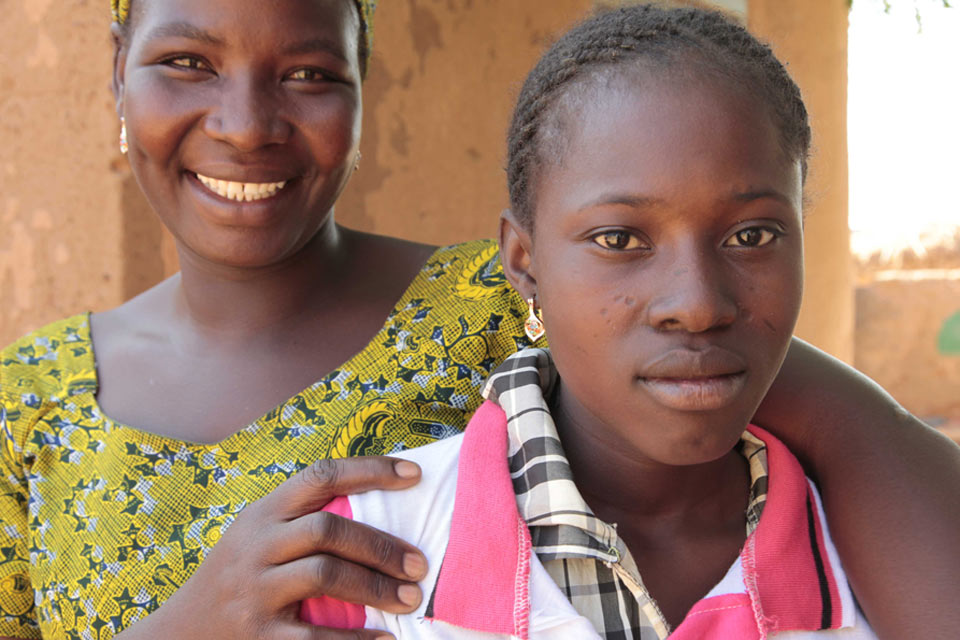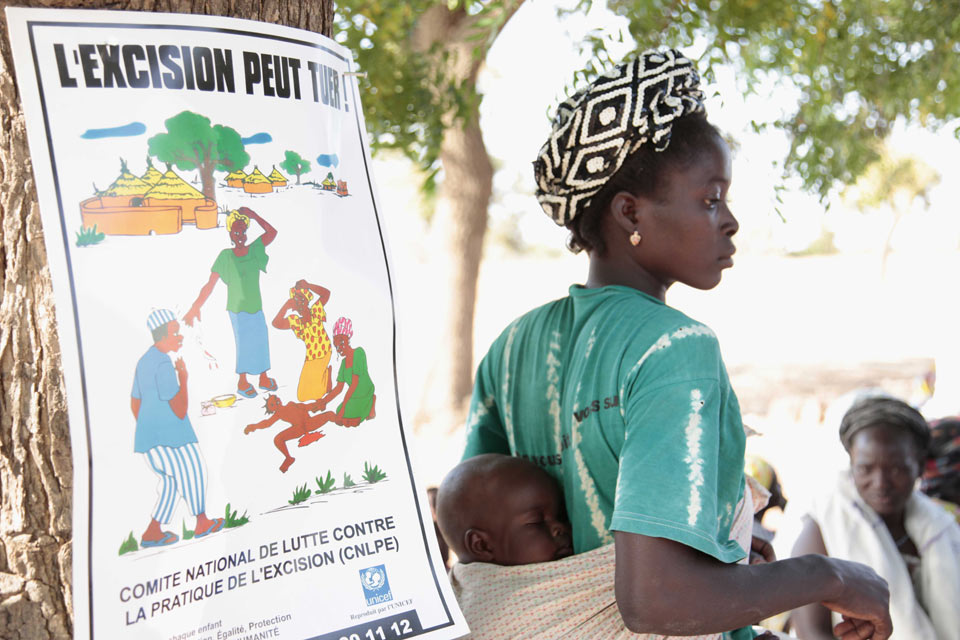Female genital mutilation: “My courageous decision to go against tradition”
Why a mother in Burkina Faso has decided not to have her daughters cut, thanks to a project supported by UK aid.

Peer educators use the models pictured here to teach communities about FGM. Picture: Jessica Lea/DFID

Asseta (left) with one of her daughters. Picture: Jessica Lea/DFID
Mother-of-three Asseta underwent female genital mutilation/cutting – also known as FGM/C – when she was 7 years old. “It was very difficult,” says Asseta. “Being cut is an event I will never forget.”
Globally, more than 125 million girls and women like Asseta have been cut.
The practice has been carried out for thousands of years and involves cutting or other damage to the female genitalia. In its most extreme form - which is carried out on 90% of girls in Somalia - all the external genitalia are removed and the girl’s vagina is sewn up.
Change is happening
FGM/C is a practice that goes right to the heart of a girl’s ability to make decisions about her own life and her own body. It results in severe pain, difficulties urinating and menstruating, pain during sex, serious problems in childbirth, physical disability and psychological damage.
In Burkina Faso, where Asseta lives, more than 75% of girls and women have been cut. But work to reverse this trend is proving successful – leadership and action from the First Lady of Burkina Faso Chantal Compaoré, community meetings, peer education, law enforcement and a national campaign have helped to reduce the numbers of girls getting cut by 31%.
All this work has had a direct impact on Asseta and her daughters.
“Deciding not to get my daughters cut was a tough decision to make,” says Asseta.
“Going against tradition can be difficult. First you need to convince yourself that the decision you’re making is the best one - you need to know the facts in order to do that. Once you have been trained on FGM/C and the consequences, you can make the courageous decision to go against tradition.”

Peer educators run community discussions to talk about FGM, raise awareness and help break taboos. Picture: Jessica Lea/DFID
Asseta went to peer education sessions about FGM/C in her village. The peer educators who ran the discussions were trained by Gascode, which receives support from the UK government via the UNICEF and UNFPA Joint Programme.
The sessions involve the whole community – from girls and women, to boys, men and village elders.
“Through my training I learnt that if a woman has undergone FGM/C she might have problems giving birth. She might lose blood. Even die. That’s why I refuse to have my daughters cut.”
Breaking taboos
And Asseta isn’t the only parent to make this decision. As a result of Gascode’s work, her entire village has abandoned the practice.
“These days the atmosphere in our village has changed,” says Asseta.
“Everyone has learnt about the consequences of FGM/C, so we can speak openly about not cutting our daughters.”
“I hope my daughter will have a better life, better health because of my decision. And I hope she will do the same for her daughters and avoid cutting.”
Supporting the momentum
In July 2014, Prime Minister David Cameron will host a major event in July to tackle FGM/C and early and forced marriage, both domestically and internationally.
Change is happening in communities like Asseta’s - from deciding collectively to end the practices, to governments passing national legislation. The UK has a role to play in supporting this momentum and July’s event will galvanise further action and help empower girls around the world.
Facts and stats
- 30 million girls are at risk of being cut over the next decade
- The UK is supporting an African-led movement to end FGM/C. In 2013, DFID launched a £35 million programme that will work in 17 countries across Africa
- In February 2014, the UK appointed a consortium of leading anti-FGM/C campaigners to deliver a global campaign to end the practice
- It is estimated that around 20,000 girls are at risk of FGM/C in the UK each year, and it is estimated 66,000 women have undergone the practice. The event in July 2014 will address FGM/C both domestically and internationally
- To date, Gascode has trained and provided technical support and guidance to nearly 160 associations and groups in 7 provinces of Burkina Faso
- The Burkina Faso government is raising awareness about FGM/C with young people by introducing it into the national curriculum. The UK aid supported UN Joint Programme will provide important support to introduce these modules into the education system.